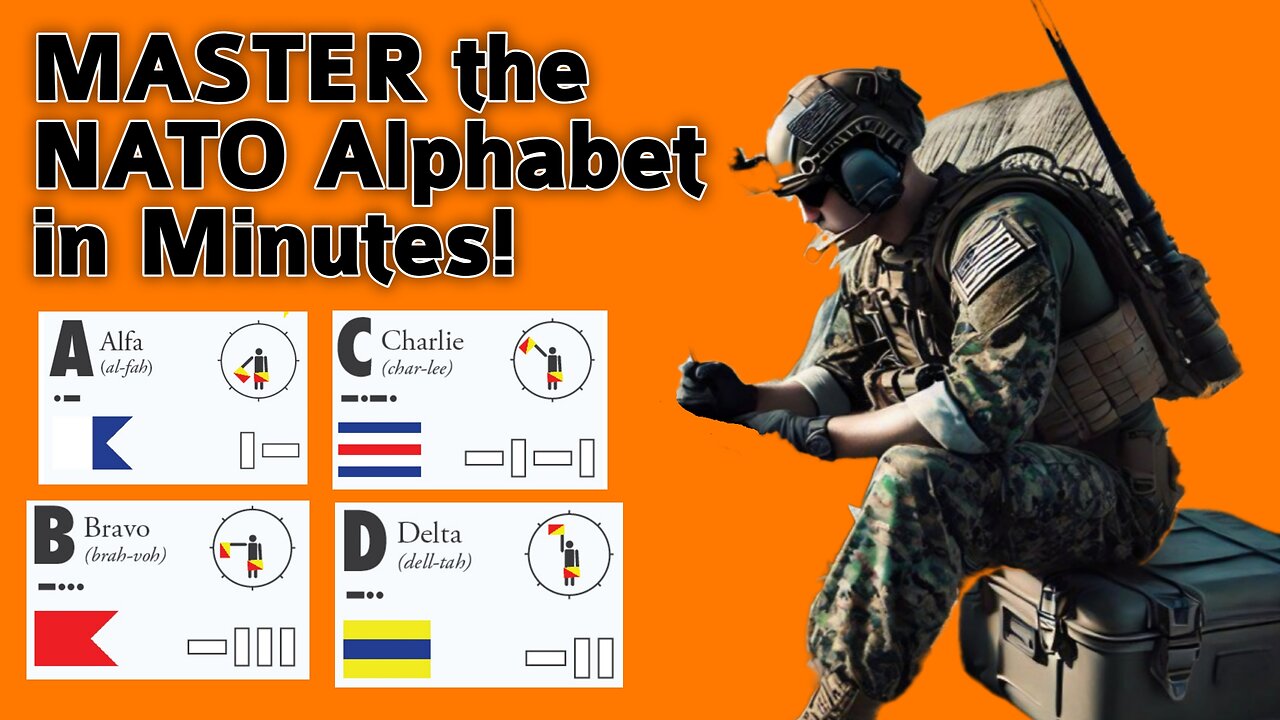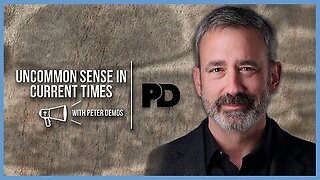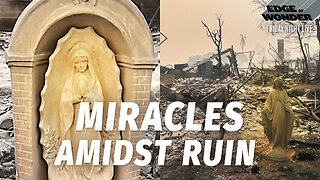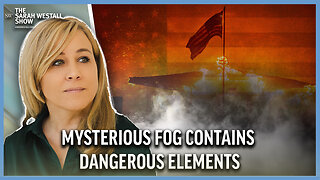Premium Only Content

Learning the NATO phonetic Alphabet for Radio Communications
Hello Operators
This is a short video on the history, alphabet, and number strategy of the NATO phonetic alphabet. The tutorial includes the phonetic pronunciation of each letter and number, its Morse code equivalent, and signalman flags.
The NATO phonetic alphabet improves clarity in radio communications by using standardized words for each letter (e.g., “Alpha” for A, “Bravo” for B). This reduces confusion caused by noise or poor signal quality, accents, or similar-sounding letters like “B” and “D.” It’s especially useful when time and copy accuracy could save lives.
The NATO phonetic numbers (e.g., “One,” “Two,” “Tree” for 1, 2, 3) ensure numbers are clear and unmistakable over radio, especially in noisy conditions or with accents. For example, “Tree” replaces “Three” to avoid confusion with “Free.”
When sending numbers with decimals, the strategy is to say “decimal (pronounced Dee-See-Mal) for the dot. For example, the frequency 146.520 MHz is transmitted as “One Four Six Dee-See-Mal Five Two Zero.” This strategy greatly increases the receivers’ likelihood of accurately copying the message.
3
Julian oh8stn
Buy my book Grid Down Emergency Communications on Patreon or Ko-fi
YouTube: https://www.youtube.com/@oh8stn
Rumble: https://rumble.com/c/OH8STN
Blog: https://www.oh8stn.org
-
 5:02
5:02
Off-Grid Ham Radio
23 days ago $0.06 earnedMerry Christmas and a book releasse
3094 -
 51:58
51:58
PMG
8 hours ago $1.14 earned"Can the Government Learn from Elon Musk’s 70% Labor Cut? A Deep Dive into Inefficient Agencies"
25.7K -
 6:39:15
6:39:15
Amish Zaku
7 hours agoRumble Spartans #10 - New Year New Maps
23.9K2 -
 1:04:58
1:04:58
In The Litter Box w/ Jewels & Catturd
1 day agoNo Tax On Tips! | In the Litter Box w/ Jewels & Catturd – Ep. 722 – 1/17/2025
145K32 -
 5:35:39
5:35:39
Dr Disrespect
14 hours ago🔴LIVE - DR DISRESPECT - WARZONE - CRAZY CHALLENGES
167K33 -
 1:16:30
1:16:30
Edge of Wonder
10 hours agoLA Fire Updates: Miracles Amidst the Devastation
42K13 -
 54:54
54:54
LFA TV
14 hours agoBanning Mystery of the Ages | TRUMPET DAILY 1.17.25 7pm
35.8K7 -
 1:47:13
1:47:13
2 MIKES LIVE
7 hours ago2 MIKES LIVE #168 Open Mike Friday!
30.8K3 -
 1:05:11
1:05:11
Sarah Westall
8 hours agoMysterious Fog and California Wildfires Both Contain Dangerous Elements w/ Dr Robert Young & Hazen
52K7 -
 1:40:48
1:40:48
Mally_Mouse
7 hours agoLet's Play!! -- Stardew Valley pt. 23!
28.1K